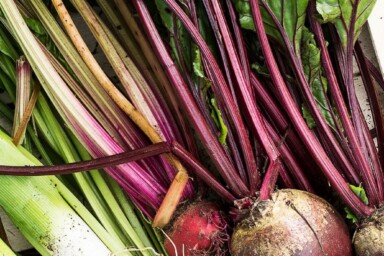I am a Masters student studying for a Degree in Occupational Psychology. Alongside this I keep a small number of native breed cattle, sheep and poultry with the aim to sustainably rear meat for the table, while preserving the breeds themselves. It is my belief that academic research should be utilised alongside many other tools, to help illustrate to the wider community the importance of mental wellbeing and balance in an agricultural working environment.
In order to combine my fascination with agriculture and Occupational Psychology, I am currently running a research study at the University of the West of England (UWE) in Bristol, which is set to explore whether farmers view their profession as a calling or as a job. The study aims to focus on the differences between farming and types of work which are based on more traditional extrinsic motivations such as money, prestige or promotion. It also proposes to explore how issues such as wellbeing, identity and autonomy work to impact farmers’ job satisfaction.
Is farming different from many other professions?
Whilst many people proclaim to enjoy their work (or elements of it at least), according to research, very few adults are living what they view to be a ‘meaningful passion, purpose or calling’. With the majority viewing their work as a job, undertaken for material need or to advance position or prestige.
The proposed study hypothesis that, as with countless individuals who work with animals or in nature, farmers will rate proportionally higher than many professions when it comes to ‘living a calling’.
There are countless reasons why this may be the case, including control over their working environment, higher job satisfaction, the chance to collaborate with family and work alongside animals, as well as the opportunity to work outdoors in beautiful surroundings. Research proposes that many who identify as farmers are more likely to view farming as central to their identity and glean meaningful involvement from their work.
However, whilst traditional research into workplace callings would suggest that those ‘who live a calling’ are the happiest, most committed and most engaged employees, according to the charity The Farm Safety Foundation (FSF), 88% of farmers under 40 years of age rank poor mental health as the biggest problem facing the industry. This suggests that, whilst engagement and commitment may be high, troublingly, happiness or job satisfaction amongst farmers may be at an all time low.
Why is job satisfaction in farming so important and what can be done to improve it?
In order to better understand the unique experience of job satisfaction in farmers, a recent study conducted by Muri, Tufte, Coleman and Moe in 2020, explored work-related characteristics as predictors of Norwegian sheep farmers’ job satisfaction and wellbeing. The study revealed that farmers’ satisfaction with their job can have profound consequences on their livestock, as farmers’ and livestock’s wellbeing are intertwined. This has been reflected in other research which has demonstrated that low levels of job satisfaction and wellbeing are linked to reduced work motivation, poor perceptions of the physical work environment and a drop in the effective performance of management routines – many of the cornerstones of successfully managing and operating a farm.
One of the key factors associated with job satisfaction amongst farmers is the proportion of off-farm work required in order to manage the financial demands of running a farm. High levels of necessary off-farm work have been associated with factors such as burnout, workaholism, employee exploitation and reduced work/life satisfaction. This is especially the case as farmers work ever harder to juggle the demands of a busy farm and a full-time role off the farm. The adverse consequences of reduced job satisfaction imply that the need for many farmers to take off farm work is not only impacting the management of their farms, but also the wellbeing of the farmers and their livestock.
Whilst much of this may be known intuitively by those on the ground, research around occupational psychology may help to quantify the impact that increased workloads, ever reducing farm incomes and the subsequent reduction in job satisfaction experienced by farmers, may have on UK farming in the future. The implications of this are ever more crucial as farm payment schemes change and the need for farmers to find off-farm work increases.
This ‘need for a greater awareness and recognition of farmers wellbeing, the factors which might affect it and the possible consequences for animal welfare’ is not a new development, as the British Farm Animal committee concluded in 2016. However, now more than ever there is a need for an interdisciplinary academic effort to truly recognise how farmers and stockpersons motivations, satisfaction and wellbeing can be improved for the benefit of the individual, the animals they care for and the farming community as a whole.





